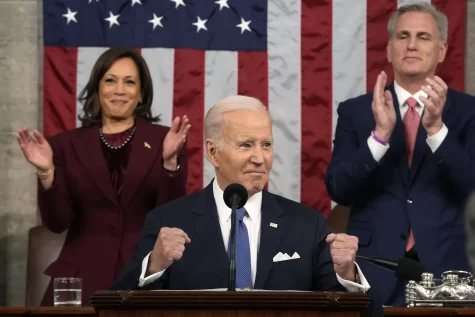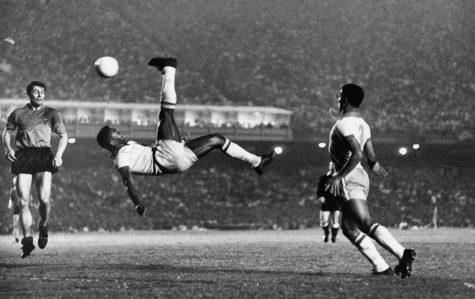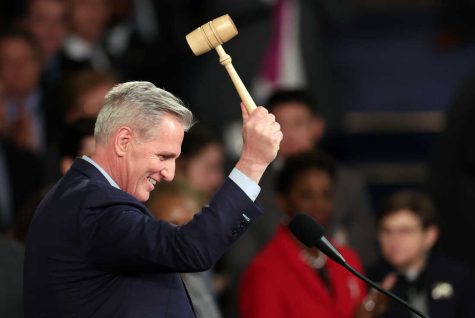Protests support student’s suspension

The fire is still burning in the aftermath of the suspension of a 56-year-old student from Oakland University.
A feminist group on campus, Students Advocating for Gender Awareness, and history fraternity, Phi Alpha Theta, have collaborated to protest what they said is an “inaccurate representation of the facts from the media.”
They gathered signatures from students for a petition and wrote a letter to President Gary Russi and Dean of Students, Glenn McIntosh.
Supporting the University
Vanessa Vojinov, a member of SAGA, said the purpose of the letter was to show support for the university’s decision to suspend the student and the petition is to raise awareness of what actually occurred.
“Phi Alpha Theta decided that they were going to have a letter to the president saying that they supported his decision and they wanted all the student organizations to sign it,” Vojinov said. “(SAGA) decided that student organizations weren’t big enough. (SAGA) wanted it like an outcry against sexual harassment from the student body itself.”
SAGA began tabling March 5, gathering signatures from students for a petition that they will eventually submit Russi and McIntosh. As of March 12, they had 633 signatures.
“This (petition) is more focused on recognizing that it is sexual harassment and the (Phi Alpha Theta collaborative letter) is more focused on the OU policy to suspend (the student),”Alex Allen, SAGA president, said.
Challenging the media
Allen said the key to the problem isn’t a free speech issue, but a sexual harassment issue.
“We really wanted to challenge a lot of the media … and the way that they are framing it as a free speech issue,” Allen said. “A lot of the headlines were like ‘OU student suspended for journal’ without really referencing what was in the journal, that the teacher was affected by it or that it was sexual harassment.”
OU did not charge the student, Joseph Corlett, with sexual harassment, according to documents released by the Foundation for Individual Rights in Education, a non-profit educational foundation based in Philadelphia. The student was charged with intimidation, violating ordinance 6.02, unlawful individual activities, of the University Ordinances and Regulations due to the content in an assignment in his Advanced Critical Writing course, which he described his sexual attraction to his instructor.
For SAGA, the student didn’t just commit intimidation, he committed sexual harassment as well.
“Sexual harassment is a form of sex discrimination, which is illegal under title seven of the Civil Rights Act of 1964,” Allen said. “(In this case) it would be that Joseph Corlett’s journal entries were unwanted sexual attention.”
According to Allen, sexual harassment is more than physical harassment or what culture perceives as something that is of a sexual nature.
“The intention is less important than the effect it has on the person,” she said. “It is less important that Mr. Corlett thought that what he was doing is ok and more important that the professor was uncomfortable with it.”
Student challenges protests
The student’s attorney, Brian P. Vincent, said the student did not commit sexual harassment.
“In terms of their protest, Joe’s speech, with respect to the charge in this matter, was entirely protected,” Vincent said. “We take issue with their assertion that Joe’s conduct has in some way violated the university’s own sexual harassment misconduct or the law.”
Corlett said the definition of sexual harassment, according to the Department of Education’s Office of Civil Rights, shows that what he wrote does not fit the definition. He said the director of OU’s Office of Inclusion and Intercultural Initiatives, Joi Cunnigham, said his work did not violate the OU’s policies during his hearing.
“(The Director) explained to the hearing committee that my daybook did not meet the definition of sexual harassment or intimidation according to (the Office of Civil Rights), with which OU must comply, according title nine,” Corlett said.
Cunnigham could not be reached by press time for comment.
Vincent said there were “procedural errors” that also occurred, which he didn’t specify, but he said that it is federal law that universities that accept federal funds comply with title nine, also known as the Mink Equal Opportunity in Education Act.
Recently, OU denied Corlett’s appeal to have Corlett reinstated, according to Vincent, but he said they will continue to stay with the case.
“The point is that popularity or majority rule or petition signing has absolutely nothing to do with the first amendment,” Corlett said. “It’s absolutely irrelevant to the first amendment. In fact, only when those among us have the least popular speech protect will the rest of us have protection.”
OU officials are still unable to comment on the matter.
To read OU’s sexual harassment policy for students visit http://bit.ly/A1L7pW and for faculty http://bit.ly/xTXmm1
Contact Assistant Campus Editor Jordan Gonzalez at [email protected]











